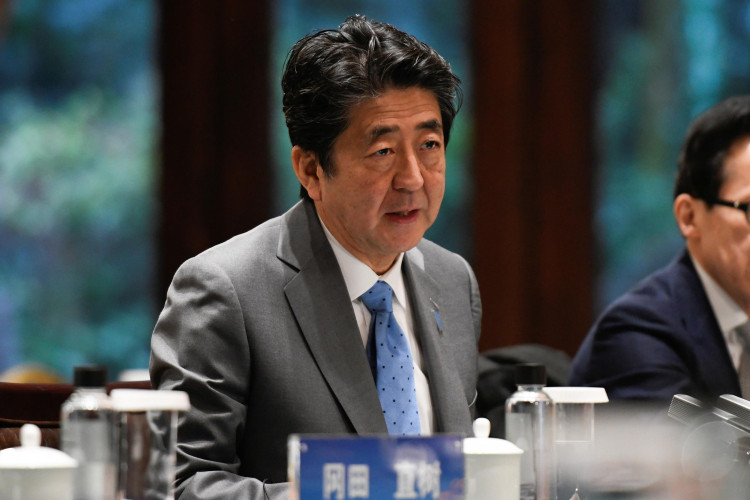On Sept. 21, a man, reportedly, set himself on fire outside the office of the Japanese prime minister in what appeared to be a protest against the decision of the government to perform a state burial for the assassinated former prime leader Shinzo Abe.
The incident occurred on what would have been Abe's 68th birthday, but neither the police nor the prime minister's office would confirm it.
The man was rushed to the hospital with full-body burns, and the policeman who attempted to put out the fire was also hurt. The man, who was in his 70s, was found unconscious but subsequently informed authorities that he had purposefully soaked himself in oil, according to reports in the media.
Nearby, a note with the words "I strongly oppose it" regarding Abe's state funeral was discovered.
Hirokazu Matsuno, the chief cabinet secretary, said at a news conference, "I have heard that police found a man who had suffered burns near government offices, and I'm aware that police are investigating." According to allegations that a guy was "engulfed in flames," the police were called to the area, according to the Kyodo news agency and other media.
As per Kyodo, the man set himself on fire in the Kasumigaseki neighborhood of Tokyo's Chiyoda ward at around 6.50 am. The official office and residence of the Prime Minister of Japan, along with several other cabinet ministry offices, are situated in the Kasumigaseki neighborhood.
The longest-serving prime minister of Japan, Abe, was fatally shot on July 8 while running for office. On September 27, a big arena for concerts and athletic events called the Budokan in Tokyo will host a publicly financed state burial in his honor.
Around 6,000 participants, including world leaders, are expected from Japan and abroad. Among those slated to attend are Australian Prime Minister Anthony Albanese and US Vice President Kamala Harris.
However, because of information that came to light following Abe's assassination about connections between the dominant Liberal Democratic Party and the divisive Unification Church, resistance to the event has been slowly increasing. The murder suspect claimed that the church had rendered his mother impoverished and that he believed the former prime minister backed it.
The current prime minister, Fumio Kishida, has seen his support plummet as the majority of Japanese people oppose the funeral, with demonstrations scheduled for the days leading up to the ceremony and on the actual day it will take place.
Although Kishida has defended his choice numerous times, the vast majority of voters are still unconvinced. They also question the necessity of holding such an expensive ceremony at a time when the average person's financial situation is getting worse.





